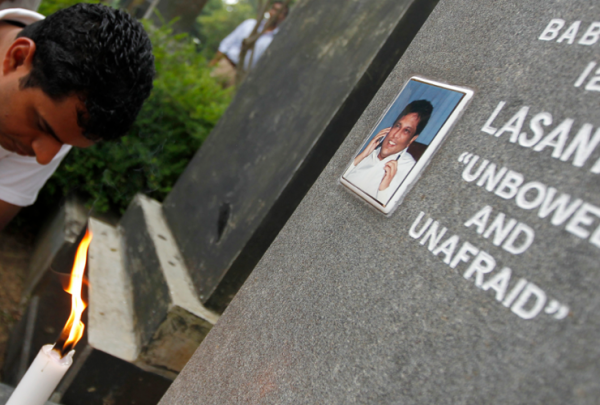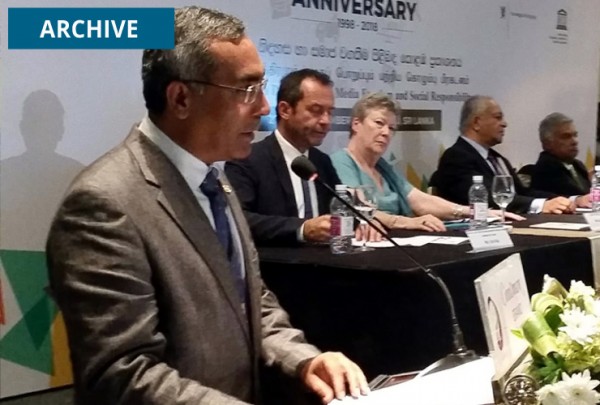The International Press Institute (IPI) on Thursday named Lasantha Wickrematunge, a former editor of Sri Lankan daily newspaper The Sunday Leader and fearless critic of the Sri Lankan government and Tamil Tiger (LTTE) militants, as its 53rd World Press Freedom Hero.
Wickrematunge was shot by unidentified attackers close to the Sri Lankan capital Colombo on 8 January and died of his injuries in hospital a few hours later.
He had predicted his own death in an editorial published three days after his murder.
He wrote: “People often ask me why I take such risks and tell me it is a matter of time before I am bumped off. Of course I know that: it is inevitable. But if we do not speak out now, there will be no one left to speak for those who cannot, whether they be ethnic minorities, the disadvantaged or the persecuted.”
Wickrematunge will be one of 60 World Press Freedom Heroes honoured in a ceremony to commemorate IPI’s 60th year of defending press freedom worldwide, at the IPI World Congress in Vienna and Bratislava, from 11-14 September 2010.
On the day it unveiled Lasantha Wickrematunge as its most recent World Press Freedom Hero, IPI conducted a brief Q&A with his brother, Chairman of Leader Publications Ltd. (which includes The Sunday Leader) Lal Wickrematunge:
IPI: The contribution made by Lasantha and The Sunday Leader to press freedom and independent journalism in Sri Lanka has been acknowledged around the world. How would you describe Lasantha’s and The Sunday Leader’s achievements in this field?
LW: Many educated persons consider The Sunday Leader to be much ahead of its time in Sri Lanka and Lasantha was the pioneer in this effort.
IPI: The courageous editorial written by Lasantha Wickrematunge a few days before he was murdered suggests that Lasantha was acutely aware of the importance of his work for Sri Lanka’s independent journalism as well as of the dangers he faced. How do you explain Lasantha’s persistent, brave refusal, as a journalist, to bow to threats and pressure, and his unflinching adoption of an editorial line that was clearly associated with such risk?
LW: Lasantha knew he was in danger through past attacks on him. But he continued in his journey unbowed and unafraid. He felt total commitment to his work.
IPI: Today you are the Chairman of Leader Publications Ltd. – which includes The Sunday Leader. Has the situation for Sri Lankan journalists changed after the end of the war? We are aware of reports of harassment and intimidation of journalists. Has the editorial line of The Sunday Leader changed following Lasantha’s murder? Do you, your newspaper team, and journalists in general in Sri Lanka feel in danger?
LW: The Sunday Leader has continued in the same editorial commitment as before and is facing threats and even death threats through the mail. The path Lasantha went is being continued and journalists in Sri Lanka still feel threatened.


